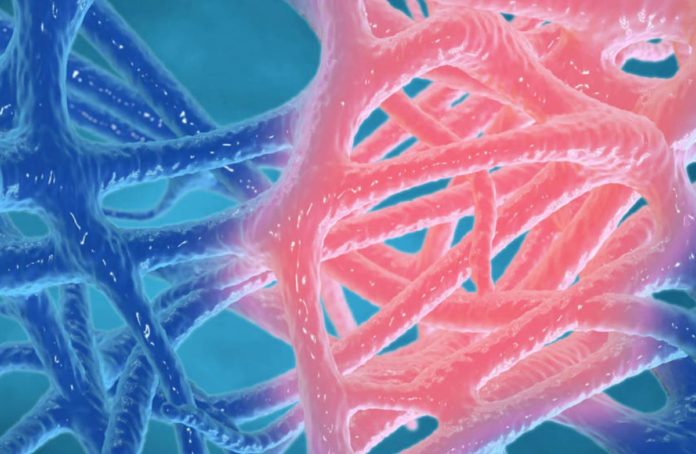Gut-dwelling microorganisms could influence the immune system’s response to infection and potentially affect the severity and outcome of the disease
Getting rid of the clutches of SARS-CoV-2 is not an easy task for anyone, but even less so if your microbiota is ‘touched’.
New research shows that imbalances in the type and volume of bacteria in it may also be involved in the ability to defeat the virus, in the severity of symptoms if you suffer from it, or in the prolongation of the disease.
We know that one of the main ways coronavirus affects people’s health is by weakening the respiratory tract, from the nose to the lungs. But as scientists have become better known to the ‘bug’, they have discovered that other systems such as the immune and digestive could also be affected.
The idea that the organs and tissues of the body open to the outside are connected is not new. In this case, scientists have found the presence of SARS-CoV-2 in stool samples from infected people. In addition, altered composition of the gut microbiota of some covid-19 patients has been observed, with fewer beneficial bacteria, including Lactobacillus and Bifidobacterium.
“[While] there is no way for our gut microbiome to exert direct protection against the virus, we have strong evidence that there is a strong relationship between the microbiota and the immune system. A healthy and balanced microbiota favors immune homeostasis, thus avoiding hyper-reactivity [of a person’s immune system]”, acknowledges Joël Doré, director of research at INRA (French National Institute for Agronomic Research).
- Does This Mean We Stopped Being Animal and Started Being Human Due to ‘Copy Paste’ Errors?
- The One Lifestyle Choice That Could Reduce Your Heart Disease Risk By More Than 22%
- Aging: This Is What Happens Inside Your Body Right After Exercise
- Immune-Boosting Drink that Mimics Fasting to Reduce Fat – Scientists ‘Were Surprised’ By New Findings
- Gun Violence in America: What They Don’t Talk About at the Debate
Precisely, this expert argues that imbalances in the composition of the microbiome may also be involved in the persistence of inflammatory symptoms, called ‘prolonged covid’.
The analysis
Since the gut is the largest immune organ in the body and its resident microbes are known to influence immune responses, the researchers wanted to know if the gut microbiome might also affect the immune system’s response to infection.
Therefore, they obtained blood and stool samples and medical records from 100 laboratory-confirmed COVID-19 hospitalized patients between February and May 2020 and 78 people without the disease who were participating in a pre-pandemic microbiome study.
The gravity
The severity of the infection was classified as mild in the absence of radiographic evidence of pneumonia; moderate if pneumonia with fever and respiratory tract symptoms is detected; severe if patients found it very difficult to breathe normally; and critical if they needed mechanical ventilation or experienced organ failure requiring intensive care.
To characterize the gut microbiome, 41 of the covid patients provided multiple stool samples while in the hospital, 27 of whom provided serial samples up to 30 days after SARS-CoV-2 clearance.
Analysis of the 274 stool samples showed that the composition of the gut microbiome differed significantly between patients with and without COVID-19, regardless of whether they had been treated with medications, including antibiotics.
Species type
Patients with infection had a higher number of Ruminococcus gnavus, Ruminococcus torques, and Bacteroides dorei species than people without. And they had far fewer species that can influence the immune system response, such as Bifidobacterium adolescentis, Faecalibacterium prausnitzii, and Eubacterium rectole.
The lower numbers of F. prausnitzii and Bifidobacterium bifidum were particularly associated with the severity of the infection after taking into account the use of antibiotics and the age of the patient.
And the number of these bacteria remained low in the samples collected until 30 days after the infected patients had cleared the virus from their bodies.
- Does This Mean We Stopped Being Animal and Started Being Human Due to ‘Copy Paste’ Errors?
- The One Lifestyle Choice That Could Reduce Your Heart Disease Risk By More Than 22%
- Aging: This Is What Happens Inside Your Body Right After Exercise
- Immune-Boosting Drink that Mimics Fasting to Reduce Fat – Scientists ‘Were Surprised’ By New Findings
- Gun Violence in America: What They Don’t Talk About at the Debate
Another response to the cytokine storm
Covid-19 infection causes the immune system to produce inflammatory cytokines in response. In some cases, it can be excessive (‘cytokine storm’), causing widespread tissue damage, septic shock, and multi-organ failure.
Analysis of the blood samples proved that the microbial imbalance found in the covid patients was also associated with elevated levels of inflammatory cytokines and blood markers of tissue damage, such as C-reactive protein and certain enzymes.
This suggests that the gut microbiome could influence the immune system’s response to infection and potentially affect the severity and outcome of the disease, the researchers say.
The keys
“In light of reports that a subset of recovered patients experience persistent symptoms, such as fatigue, dyspnea [shortness of breath], and joint pain, some more than 80 days after the initial onset of symptoms, we postulate that the gut microbiome Dysbiotic could contribute to immune-related health problems after COVID-19.”
This is an observational study and as such it cannot establish a cause, in addition to the fact that the gut microbiome varies widely between different populations, so the changes seen in this study may not be applicable to other patients with the virus elsewhere, the researchers warn.
But they point to growing evidence showing gut microbes are linked to inflammatory diseases inside and outside the gut.
And they conclude: “The reinforcement of beneficial intestinal species depleted by the disease could serve as a novel way to mitigate its severe version, which underlines the importance of controlling the intestinal microbiota of patients during and after COVID-19″.
